Part ONe
PART ONE
Basics – The integration of yogic techniques into psychotherapy
The first part of the Yoga-Psychotherapy Training (YoPT®) lays the foundations. The focus is on the integration of yogic techniques – or “yoga tools” – into one’s own psychotherapeutic work. We learn to build up a “sattvic yoga resource” that we can use for all further problem solving that our patients bring to therapy. To do this, we combine the “yoga tools” with Stephen Porges’ polyvagal theory so that we can teach our patients self-regulation techniques against stress, anxiety and depression.
Self-regulation is the first step in successful psychotherapy. The inclusion of the body in psychotherapy offers the possibility to activate and change emotional structures, to work on physical protective patterns and thus to transform mental beliefs. Self-regulation is the basis for this. Without a stable, physically anchored resource in the “adult self”, all further steps such as trauma work, ego-state work, “inner child work” cannot really take effect.
PART ONE takes place in two five-day training modules (Module A & B) at the Seminar Centre Chlotisberg with a maximum of 20 participants.
Module A: 14 – 19 January 2024
Module B: 03 – 08 March 2024
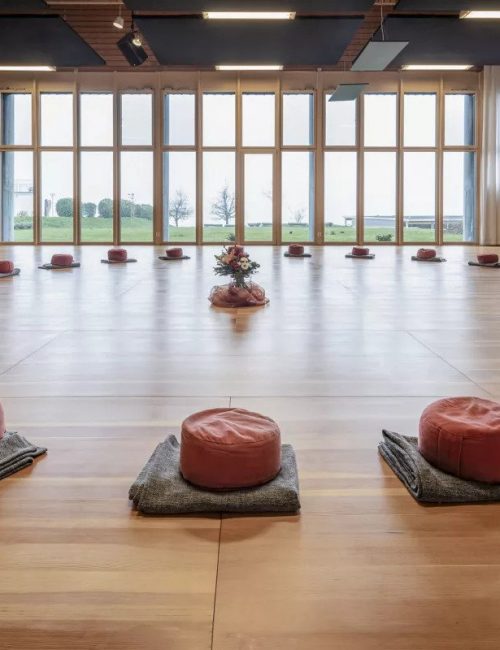
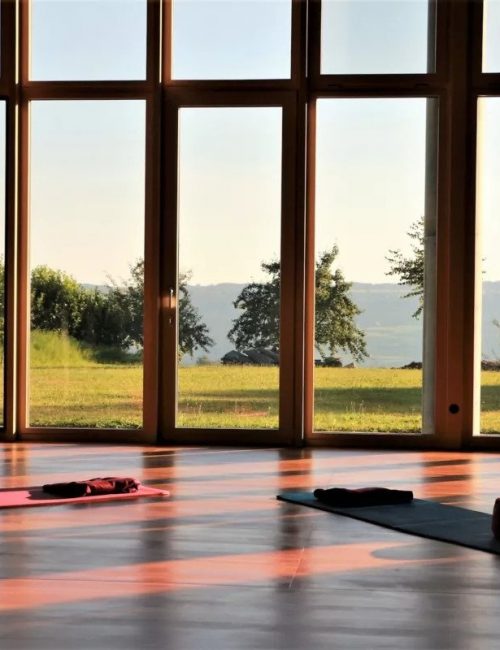
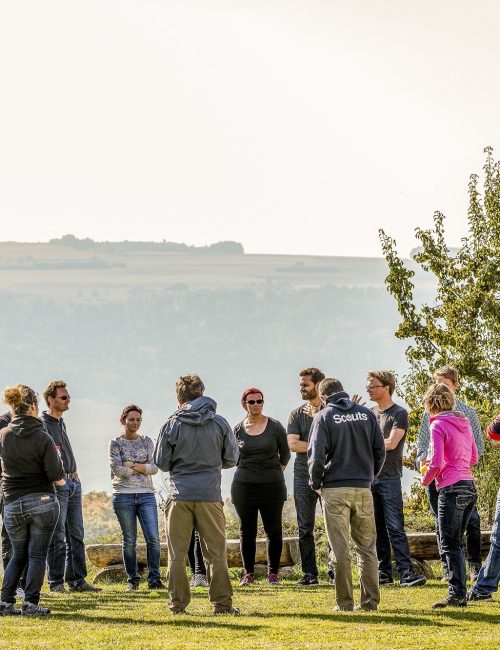
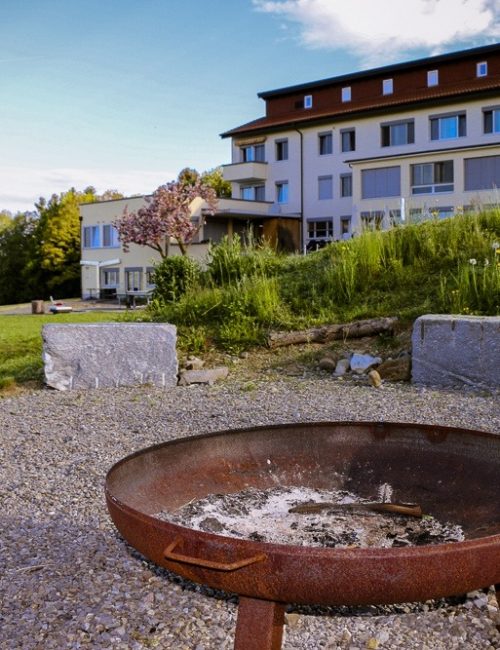
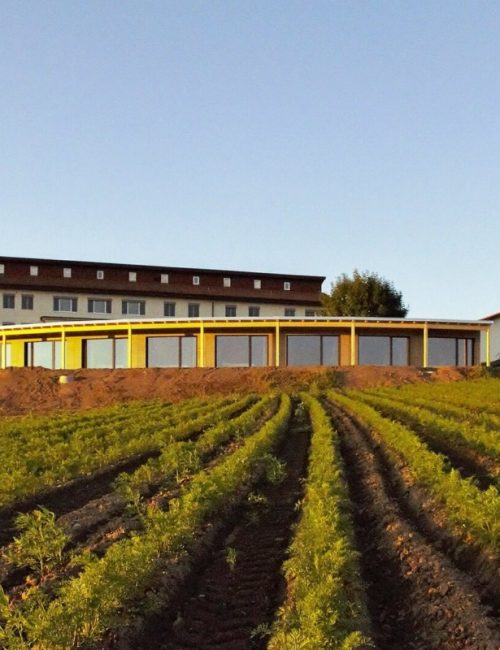



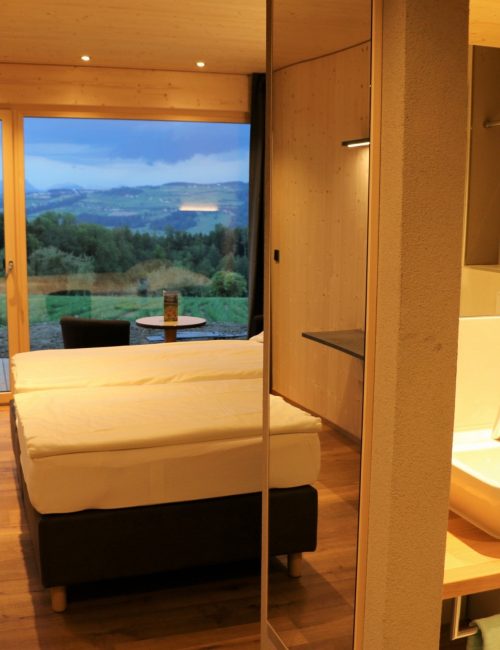

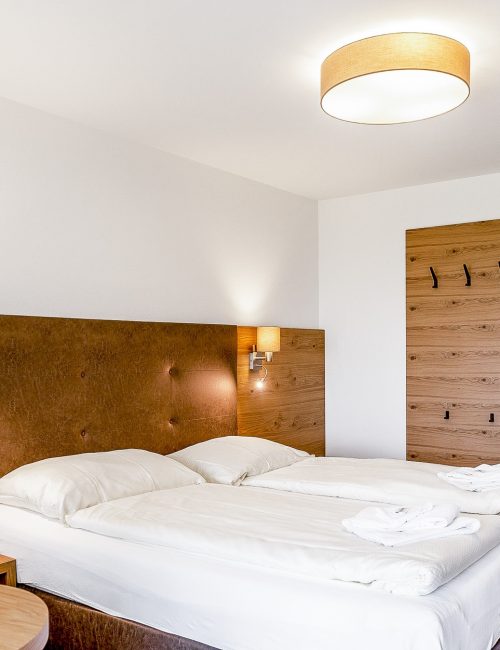
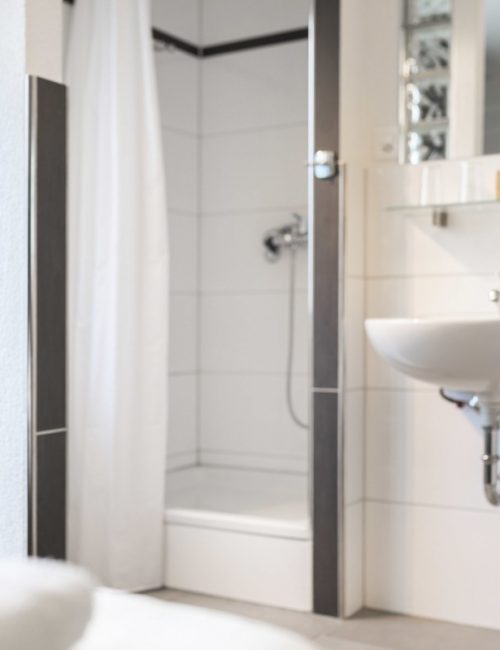
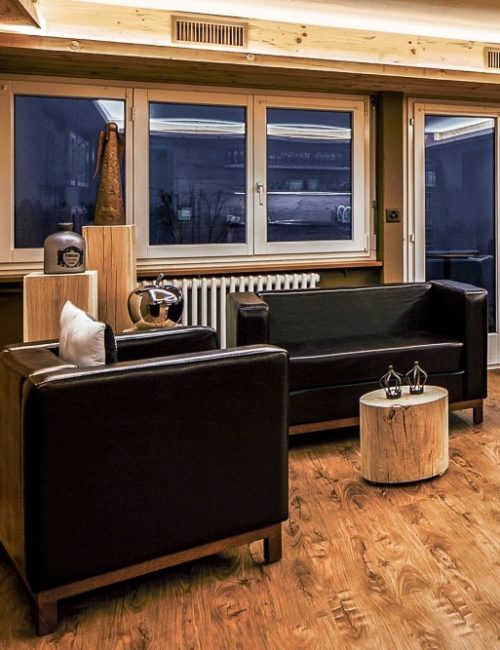
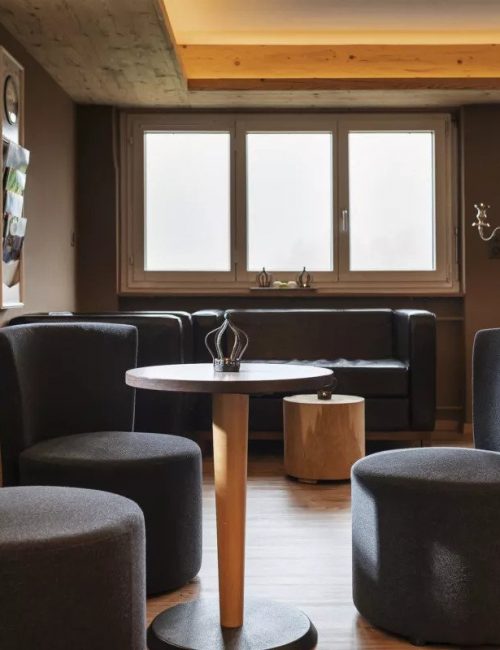

More pictures on chlotisberg.ch
PART ONE – Basics: Module A
Day 1: First yoga tools and application in activation therapy e.g. for depression. Activating pranayamas (breath), asanas (body positions) and mudras (hand positions) as therapy interventions and their integration into a therapy session.
Day 2: Further yoga tools for calming and application in the treatment of anxiety and stress disorders. Yoga flow for relaxation of the sympathetic nervous system.
Day 3: Building the “sattvic” resource for the psychotherapeutic process. Balancing too much activation/stress or too little drive/engagement. The art of pacing and leading in the yoga process.
Day 4: The yoga resource in the therapeutic process as a physical anchor for a healthy adult self-awareness. Working with the mudras.
Day 5: The trifocal processing between resource and problem network in mirror neural work.
PART ONE – Basics: Module B
Day 1: “Yoga tools” for legs and pelvic floor. Theory on the “first chakra” (child development needs for contact and bonding).
Day 2: Yoga tools for abdomen and lower back. Theory on the “second chakra”: needs of sensuality, emotionality and attunement. The yoga resource for different therapeutic problems. Commuting between problem network and resource network.
Day 3: Yoga tools for the upper abdomen, back and chest area. Theory on the “third chakra”: need for autonomy and control. Techniques for the treatment of stress disorders in theory and practice.
Day 4: Theory on the “fourth chakra”: need for love and trust. Deepening the pendulum between yoga resource and problem network.
Day 5: Working with shock trauma: Hemispheric activation to resolve traumatic shock rigidity. Illiopsoas trembling and gentle trauma yoga for “the inner child”. Outlook for the continuation in PART TWO.
Accreditation
The workshop is recognised by the FSP as part of the continuing education requirement for psychologists and can be submitted for credit for continuing education units.
Lecturers
Miriam Popper: Head of the YoPT® Institute. Federally recognised psychotherapist, lic.phil.I/MAS psych. and certified yoga teacher AYA/SYV/EYU (more information here) and assistants. (The training can be translated into E if needed).
Details
Course price: CHF 1650.- per module, payment in installments possible. (10 days à 49 hours incl. scripts / excl. board and lodging). Maximum 20 participants.
Place: Training retreat at the Chlotisberg seminar centre – chlotisberg.ch
Dates: Sunday 14 January (6pm) – Friday 19 January (2pm) and Sunday 3 March 2023 (4pm) – Friday 8 March 2024, (2pm).
Registration
(Please send your registration for PART ONE together with your registration for PART TWO and/or PART THREE).
Fields marked with * are required.
Please do not forget to book a room.
